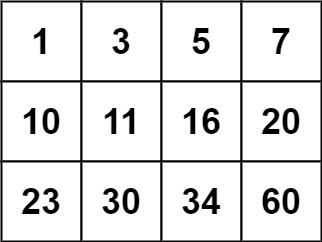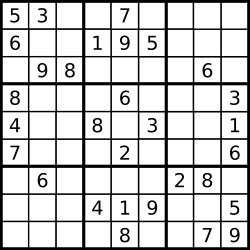Given an m x n grid of characters board and a string word, return true if word exists in the grid.
The word can be constructed from letters of sequentially adjacent cells, where adjacent cells are horizontally or vertically neighboring. The same letter cell may not be used more than once.
Example 1:
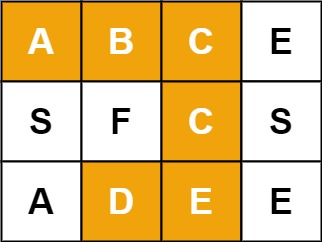
Input: board = [["A","B","C","E"],["S","F","C","S"],["A","D","E","E"]], word = "ABCCED" Output: true
Example 2:
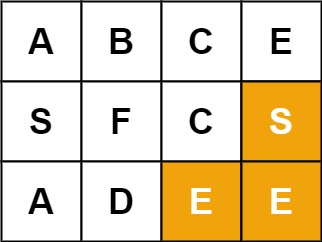
Input: board = [["A","B","C","E"],["S","F","C","S"],["A","D","E","E"]], word = "SEE" Output: true
Example 3:
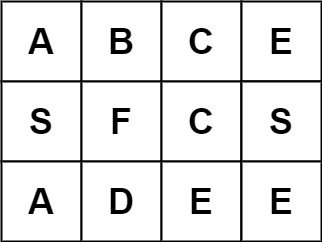
Input: board = [["A","B","C","E"],["S","F","C","S"],["A","D","E","E"]], word = "ABCB" Output: false
Constraints:
m == board.lengthn = board[i].length1 <= m, n <= 61 <= word.length <= 15boardandwordconsists of only lowercase and uppercase English letters.
Idea:
DFS
Solution:
/**
* @param {character[][]} board
* @param {string} word
* @return {boolean}
*/
var exist = function(board, word) {
for (let x = 0; x < board[0].length; x++)
for (let y = 0; y < board.length; y++)
if (dfs(board, word, 0, x, y)) return true;
return false;
};
function dfs(board, word, i, x, y) {
// exit recursion:
if (x < 0 || y < 0 || x >= board[0].length || y >= board.length || word[i] !== board[y][x])
return false;
// found the last letter
if (i === word.length - 1)
return true;
let cur = board[y][x];
// mark it 0 means already visit
board[y][x] = 0;
let found = dfs(board, word, i + 1, x + 1, y) ||
dfs(board, word, i + 1, x - 1, y) ||
dfs(board, word, i + 1, x, y + 1) ||
dfs(board, word, i + 1, x, y - 1);
// recover
board[y][x] = cur;
return found;
}
